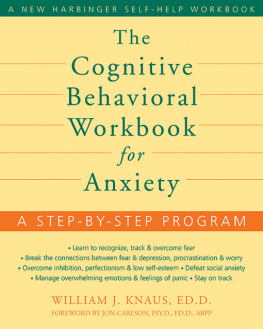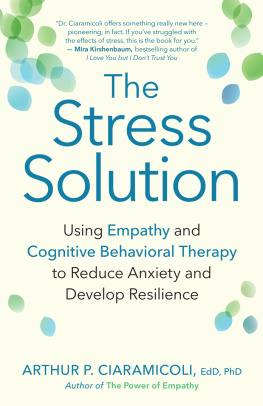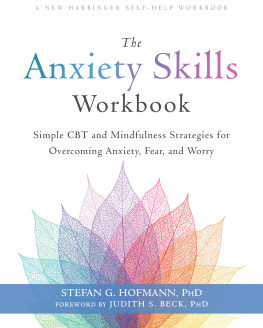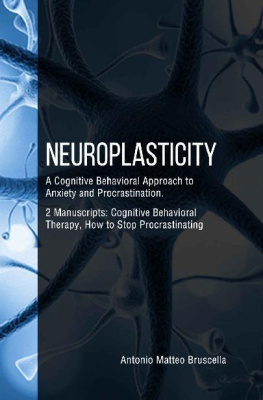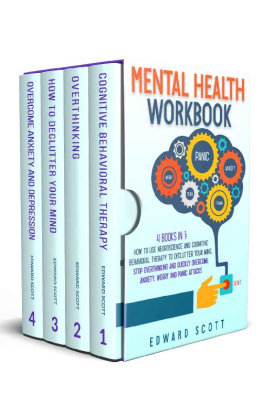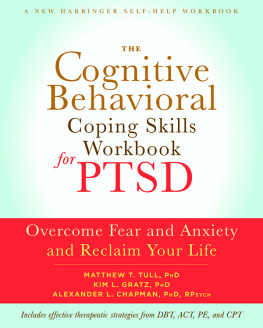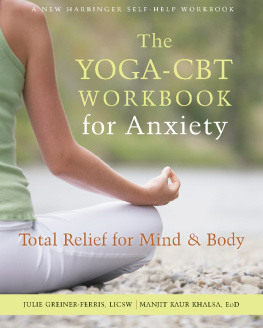William J. Knaus, Ed.D., is a licensed psychologist with more than forty years of clinical experience in working with people suffering from depression. He has appeared on numerous regional and national television shows including the Today Show, and over 100 radio shows. His ideas have appeared in national magazines such as U.S. News and World Report and Good Housekeeping, and major newspapers such as the Washington Post and the Chicago Tribune. He is one of the original directors of training at the Albert Ellis Institute. He is the author of twelve books including Overcoming Procrastination and Do it Now.
Knaus has hit the bulls-eye! From a horde of scientific studies and his own extensive experience, he has distilled an accessible, easily assimilated, pragmatic, and schematic approach to dealing with parasite anxieties. Readers can work through this program in small bites to gradually advance their control over their destructive anxieties.
Joseph Gerstein, MD, FACP, Harvard Medical School
In The Cognitive Behavioral Workbook for Anxiety, Knaus condenses cognitive and behavioral skills to combat parasitic fears and anxieties into a clear, orderly, and concise process. Read this book, work through its exercises, and save yourself from the abyss of needless pain and suffering.
Elliot D. Cohen, Ph.D., author of The New Rational Therapy
This is a great book. Its an extremely well-written guide to action for those suffering from various conditions from anxiety and depression to severe procrastination. But its far more than just another self-help book. Instead, this prescription for happiness and health is based on scientific evidence. Between these covers there is a complete course in psychology. I only wish my graduate psychology students had as much genuine knowledge of our field as is found in this book.
Richard Sprinthall, Ph.D., professor emeritus, American International College
Today, fear and anxiety are almost as prevalent as the common cold. But we have to wait for a cold to run its course before we feel better. This well-written, detailed, and informative book offers immediate, practical, and tested strategies that we can apply to get results right away!
Sam Klarreich, Ph.D., C. Psych., author of Pressure Proofing and president of the Berkeley Centre for Effectiveness in Toronto, ON, Canada
Every once in a while, a self-help book appears that is so reader-friendly and thorough that I feel compelled to insist that my patients acquire it. The Cognitive Behavioral Workbook for Anxiety is such a book. Its innovative and powerful strategies will reduce the suffering of many. I predict it will quickly become the standard in scientifically sound assistance for anxious and fearful individuals.
Barry Lubetkin, Ph.D., ABPP, director of the Institute for Behavior Therapy in New York, NY
Knaus has written an engaging book filled with practical strategies for defeating anxiety based on sound scientific principles. I recommend it highly for the millions who are plagued by unnecessary, pleasure-robbing fears.
Joel Block, Ph.D., ABPP, assistant clinical professor of psychiatry at Einstein College of Medicine
Knaus digs deep into his years of clinical experience to provide both practical and powerful ways to eliminate the fears and worries that compromise ones quality of life. Each chapter is filled with useful ideas, tips, and strategies that move a person from anxiety to peace of mind. My hope as a practicing clinical psychologist and workshop leader is that those who want to substantially lessen their anxiety as well as those who want to increase their well-being will give themselves the gift of this book.
Russell Grieger, Ph.D., clinical psychologist, adjunct professor at the University of Virginia, and organizational consultant
This book is solidly researched and based on proven helping methods. The analyses of cases clearly show how to break down problems and provide ways to develop alternate views and behaviors. Forms and exercises provide guides for readers to examine their concerns. The complex cases demonstrate how clients can increase their tolerance for negative emotions and use self-management techniques to develop self-control. Only a person with decades of clinical practice could write a book of this depth and quality.
Robert E. Arthur, professor emeritus of psychology at the University of WisconsinLa Crosse
Knaus uses the term parasite to describe the impact of fear on behavior to vividly illustrate how it directs our lives. The Cognitive Behavioral Workbook for Anxiety not only shows one how to, but, of equal importance, why to address ones fears. Knaus emphasis on prevention is further reason why a copy of this book is a must for students and families.
George Elias, professor emeritus of psychology at Assumption College
Anxiety is one of the most debilitating emotions that we have to deal with. It prevents us from having a better life in many areas and restricts us from reaching our full potential. In The Cognitive Behavioral Workbook for Anxiety, one of the fields most rational and insightful minds takes readers on a journey of discovery into the heart of anxiety and shows how to largely eliminate this emotional plague from our lives.
Vincent E. Parr, Ph.D., president of the Center for Rational Living in Tampa, FL

Publishers Note
This publication is designed to provide accurate and authoritative information in regard to the subject matter covered. It is sold with the understanding that the publisher is not engaged in rendering psychological, financial, legal, or other professional services. If expert assistance or counseling is needed, the services of a competent professional should be sought.
Distributed in Canada by Raincoast Books
Copyright 2008 by Bill Knaus
New Harbinger Publications, Inc.
5674 Shattuck Avenue
Oakland, CA 94609
www.newharbinger.com
Cover design by Amy Shoup
Text design by Tracy Carlson
Acquired by Jess OBrien
Edited by Brady Kahn
All rights reserved
Epub ISBN: 978-1-60882-063-4
The Library of Congress has cataloged the print edition as:
Knaus, William J.
The cognitive behavioral workbook for anxiety : a step-by-step program / William J. Knaus.
p. cm.
ISBN-13: 978-1-57224-572-3 (pbk. : alk. paper)
ISBN-10: 1-57224-572-7 (pbk. : alk. paper) 1. Anxiety. 2. Rational emotive behavior therapy. 3. Cognitive therapy. I. Title.
RC531.K63 2008
616.852206--dc22
2008029812
Foreword
Worry gives a small thing a big shadow.
Swedish proverb
My grandparents, who emigrated directly from Sweden, had many sayings (like the one above) that I learned as a child. Most of these sayings did not have much meaning for me until later in life. Much of our learning occurs in this fashion from our families and cultures. This is the type of learning that seems second nature, the kind that seems invisible because we dont even know how or what we know. Many positive as well as negative habits are transferred to us through this transgenerational learning. Some learnings help us to cope with life while others tend to be destructive and include fears, anxieties, worries, and phobias.
Alfred Adler explained that fears, anxieties, worries, and phobias have a function or purpose. Anxiety is a safeguarding mechanism that causes people to frighten themselves out of doing things. They could simply decide not to do these things, but then they might have to face their complexes and admit them. With anxiety as a mechanism, they claim they are too afraid to try (Carlson, Watts, and Maniacci 2006). These patterns are frequently acquired without our direct awareness or conscious intent.

